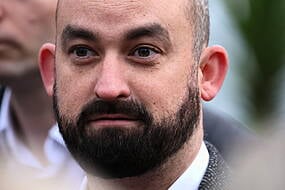A Fine Gael MEP is leading a campaign for the European Union to end the "outdated" practice of biannual clock changes.
Seán Kelly, MEP for Ireland South, said he is pushing for the matter to be brought back onto the political agenda in the upcoming parliamentary term.
"I have been working for many years to see the end of this outdated practice," Mr Kelly said.
"It is time to put an end to the biannual clock change, which has been proven to have negative effects on health, well-being, and safety. The practice is no longer fit for purpose in today’s world."
Every year the clocks go back an hour at 2am on the last Sunday of October.
When the clocks change, so does Ireland’s time zone; it switches from Irish Summer Time to Greenwich Mean Time.
It has been argued that changing the clocks upsets the natural rhythm of sleep, which can lead to health problems.
Mr Kelly is leading a new campaign in the European Parliament and highlighted the broad political support behind his initiative, with MEPs from every political group signing a joint letter to European Commission President Ursula von der Leyen, calling for action.
"This is not a partisan issue," he said. "There is widespread agreement across the political spectrum that the clock change needs to end."
In the letter, Mr Kelly and his colleagues pointed to the extensive public backing for the proposal. "Citizens across Europe have spoken," he said. "In 2018, a public consultation saw 84 per cent of participants favour ending the clock change. This is a clear mandate from the people, and it is high time the European Commission acted on it."
Mr Kelly said the negative impacts of clock changes on health are well documented.
"Studies have shown that changing the clocks can disrupt sleep, increase the risk of heart attacks, and lead to more traffic accidents," Mr Kelly said.
"In addition, the energy-saving argument that once supported this practice is outdated. In fact, we now know that changing the clocks could actually increase energy consumption during the winter months."
He added: "Abolishing the clock change would simplify life for millions of people across Europe. It’s a practical and popular measure, and I am committed to seeing it through."
Currently EU member states are required by law to change the clocks twice a year in order to make use of natural light.







